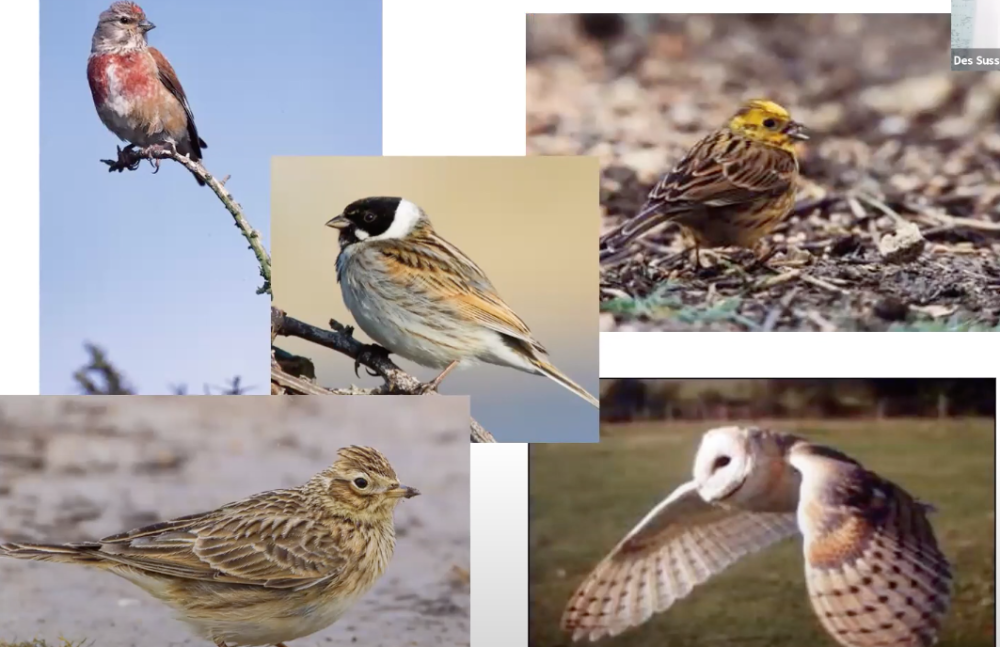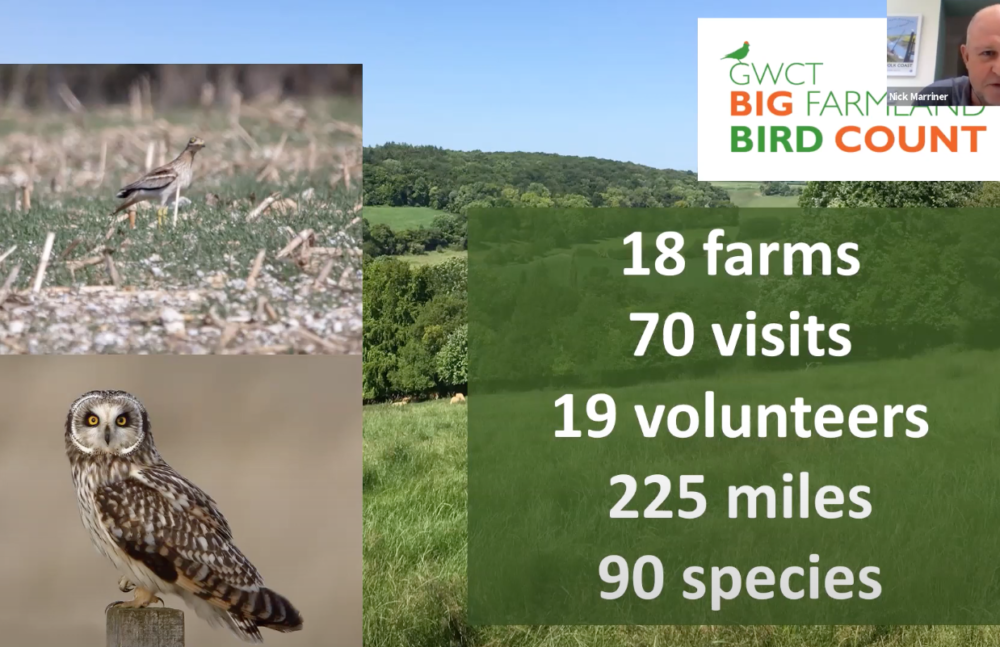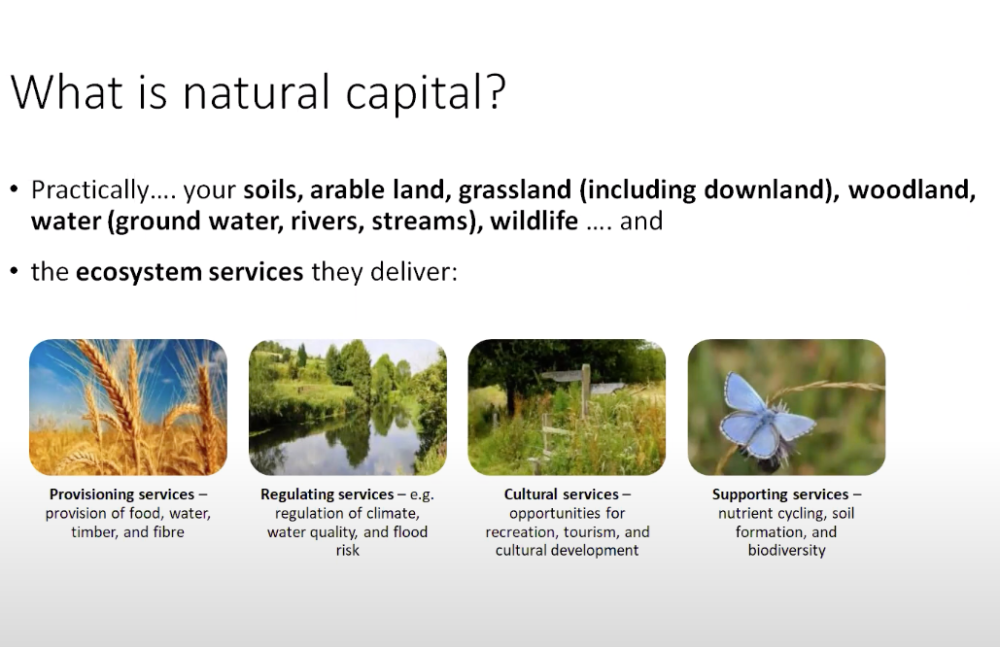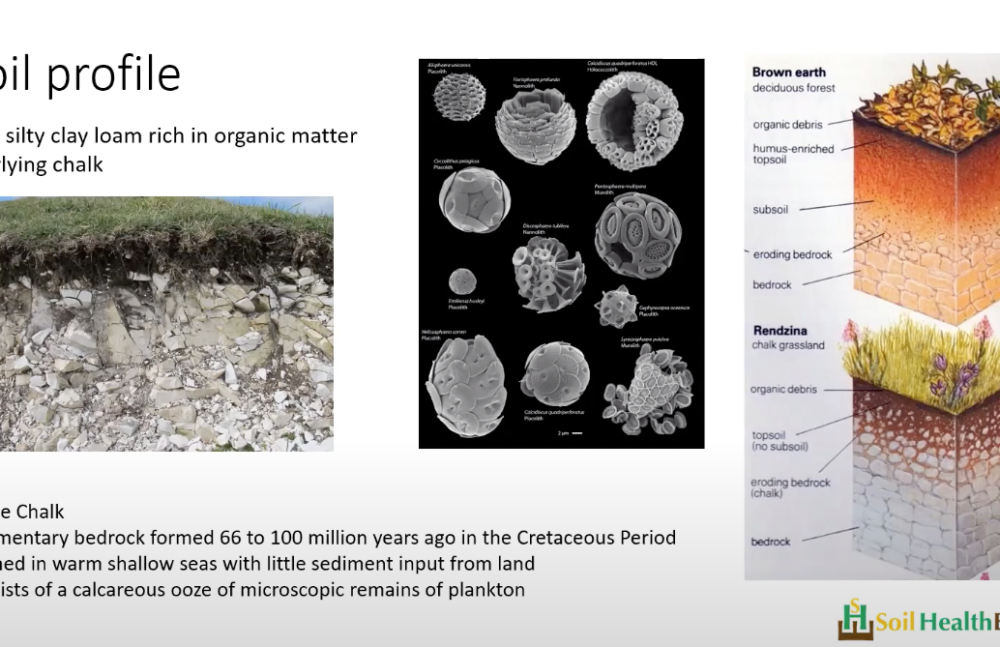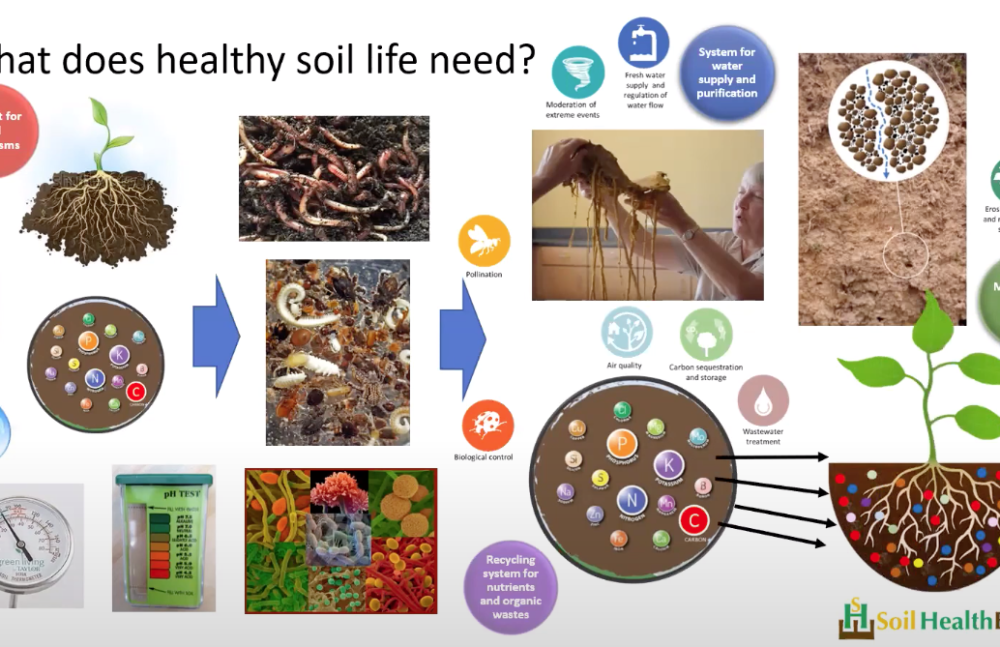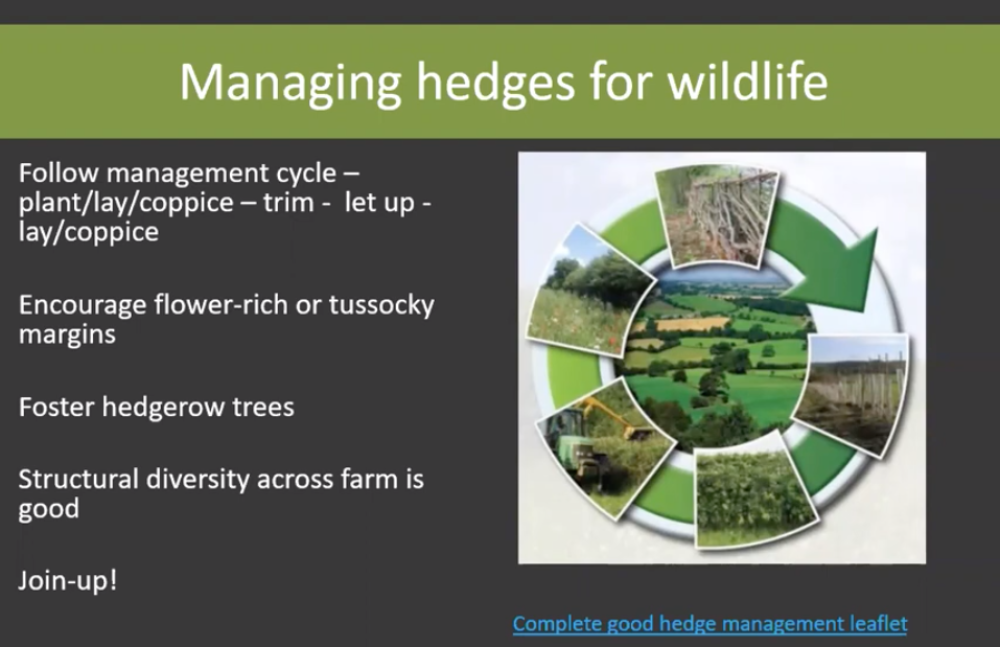Farmland Birds in the North Wessex Downs – Reversing the Decline.
Des Sussex, Team Leader from Natural England sets the context and outlines the reasons for the catastrophic decline in farmland birds across the country; Neil Bucknell from the Berkshire Ornithological Club discusses the key farmland bird species in the North Wessex Downs AONB, their habitat requirements and why some areas are better for them than others. Finally, Des covers the three big Countryside Stewardship options that benefit farmland birds.
Behind the Scenes of a Farmer Cluster
Speakers: Ian Waller & Nick Marriner
Eighteen farmers are leading the way in supporting Nature’s recovery in the Chilterns. They have formed the Central Chilterns Farmer Cluster (CCFC) and have set themselves the challenge of better understanding the wildlife on their farms and to find ways of working together to create more habitat for their birds, butterflies and plants. Ian Waller, farmer and CCFC Chair, and Nick Marriner, Landowner Engagement Officer for the Chilterns Conservation Board (CCB), will share their experiences of the cluster to date, taking us back to why it was formed, how things have progressed, what farmers have been doing, the groups future plans and to share ideas on how farmers are being supported to prepare for ELM. The cluster is supported by the CCB and the National Lottery Heritage funded Chalk, Cherries and Chairs Landscape Partnership Scheme.
Introduction to Natural Capital on Your Farm – Speaker: Paul Silcock
This presentation introduces the concept of ‘natural capital.’ Natural capital refers to the assets provided by nature with the capacity to generate goods and services, often called ‘ecosystem services’, which provide benefits to businesses and society. Natural capital includes assets such as soils, habitats, species, water, minerals and air and the natural processes that underpin their functioning. Ecosystem services include the provisioning of food, fibre, timber, fuel and clean water; regulating services such as pollination and the maintenance of climate, soils, water and air; and cultural services such as recreation, tourism and sense of place. Paul Silcock, founder and Managing Director of Cumulus Consultants, will share his extensive knowledge and experience of working with the land-based sector and applying a natural capital approach both in policy and practice and what this could mean for your farm. He will explain how a natural capital approach can lead to more informed decision-making, enhanced economic and environmental performance, greater resilience, improved regulatory compliance and enhancing public profile and support (including from the new Environmental Land Management scheme and private environmental income streams).
Getting to Know Your Soils: Part 1 – Speaker: Professor Jenni Dungait
A fascinating introduction to finding out more about your soils. The presentation covered what tools you can use to assess the health of your soil, positive indicators, signs of degraded soils, soil carbon and much more. Jenni is a globally renowned soil scientist with 20 years of academic research experience in Soil Biogeochemistry and is now working as a freelance consultant after establishing the Soil Health Expert in 2018. As well as an engaging speaker, she is currently Editor-in-Chief of the European Journal of Soil Science and has a passion for science communication and knowledge transfer, working widely with researchers in soil science and with partners in the agricultural industry.
The Future Role of Hedges – Speaker: Dr Rob Wolton
Increasingly, hedgerows are being valued for functions beyond those they were originally created for. They are being valued more and more both for the benefits they can bring to farm businesses and for the public goods they can provide for society as a whole. This talk looks at these various functions, particularly in the contexts of Environmental Land Management and of the climate and ecological crises. It explores the changing roles of hedgerows, and the consequences for planting new ones and the management of existing ones. Topics covered include wildlife, agroforestry, soil conservation, pollution control and flood risk reduction, and carbon capture and wood fuel production.

